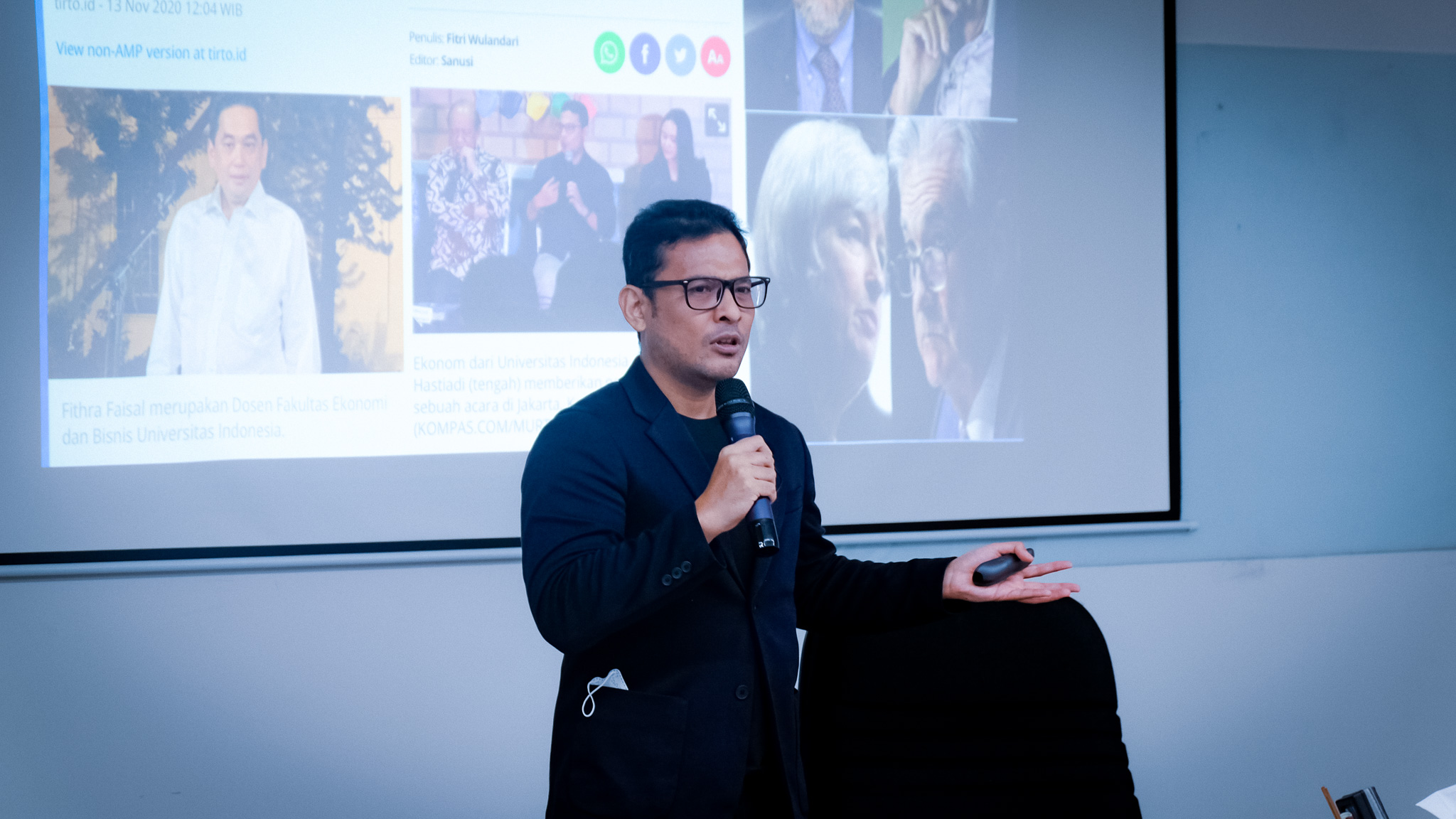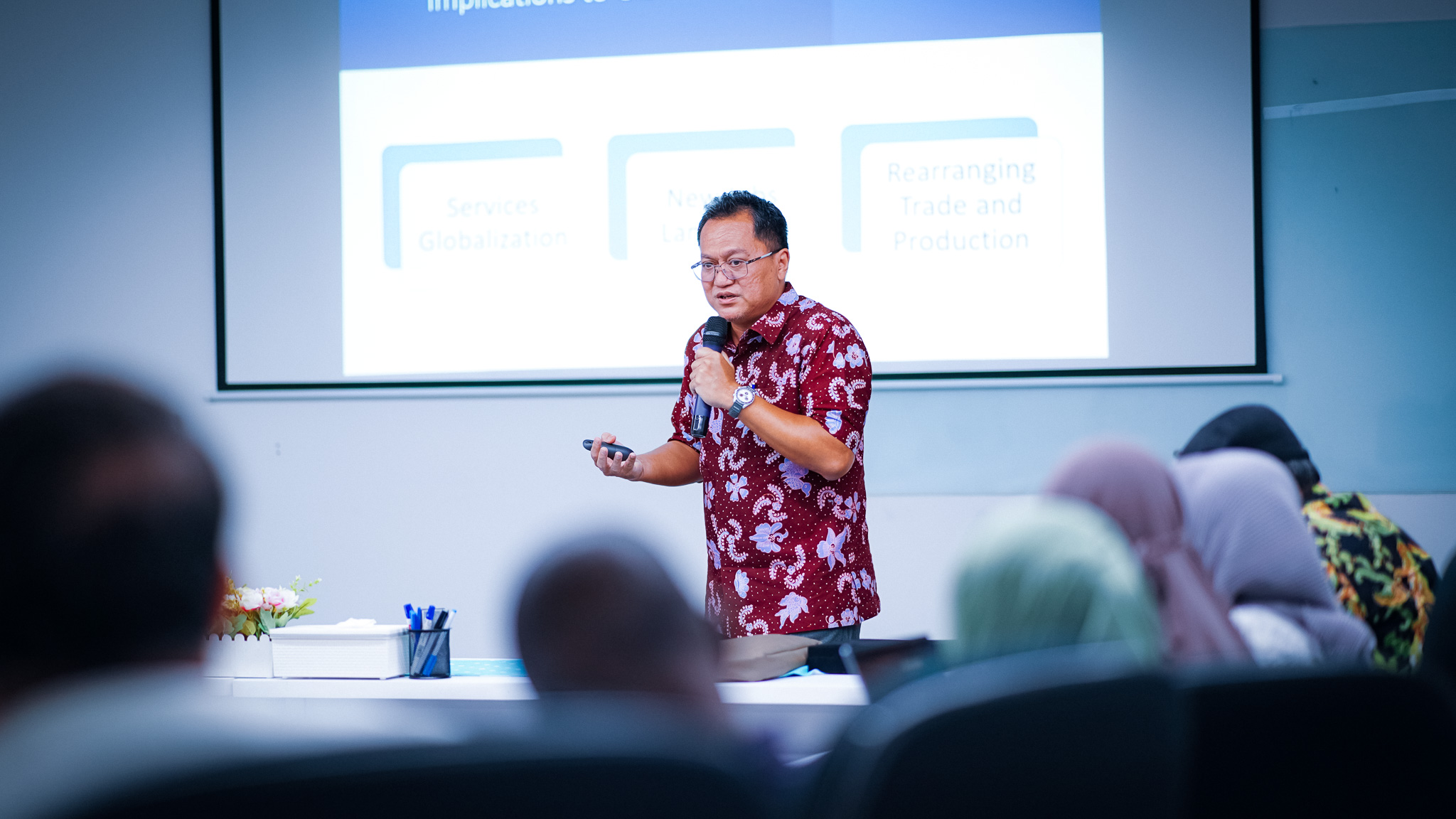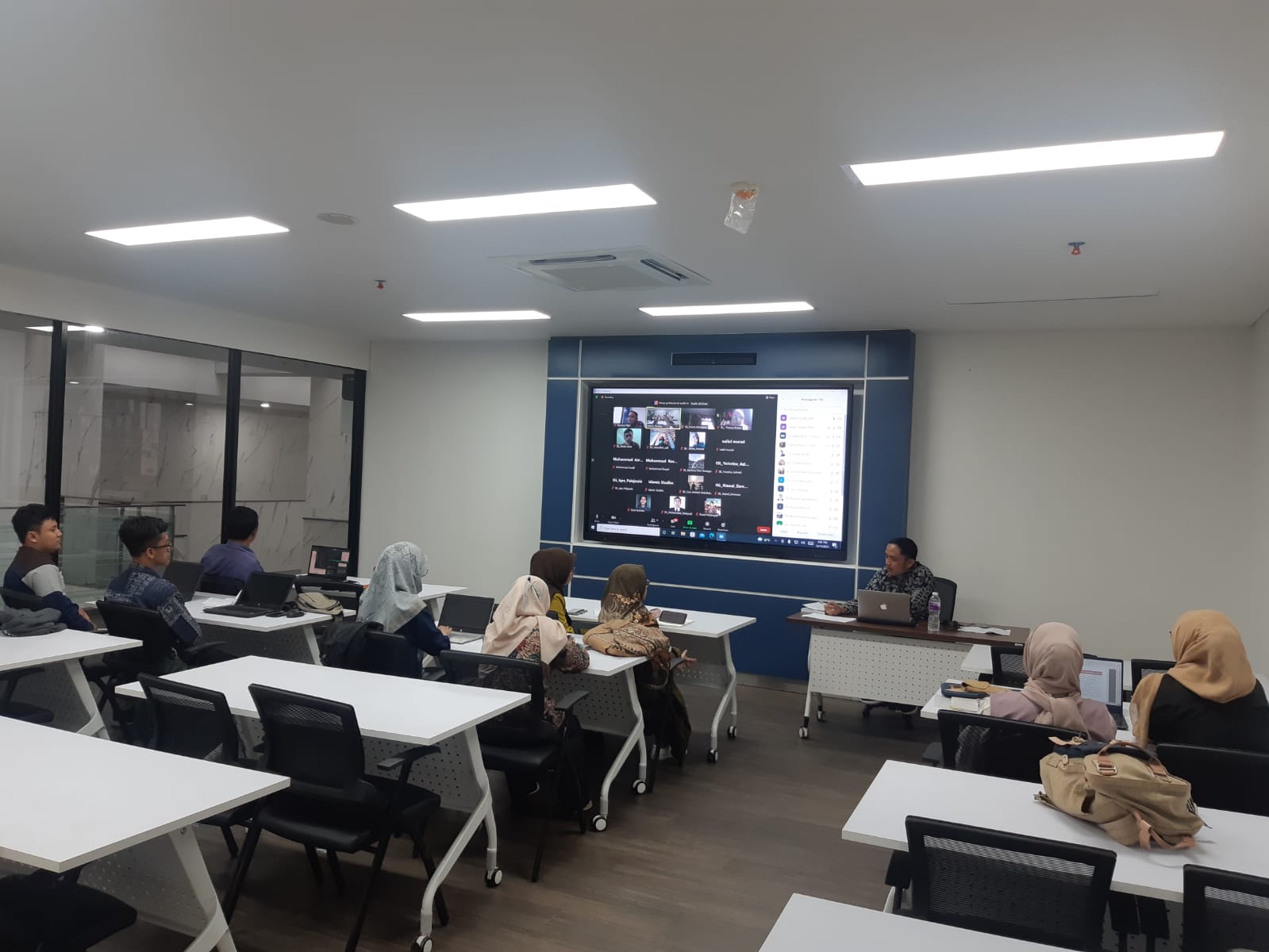SVB Closure, Tech Winter and its Impacts on Indonesia’s Tech Industry
April 07, 2023Contributor: Safiullah Junejo | Editor: Supriyono

Given the calamity brought by the COVID-19 pandemic, economies worldwide are facing unprecedented challenges. The tech industry, which has been one of the most resilient sectors in recent years, has now been impacted, following the collapse of Silicon Valley Bank (SVB), and the heavy losses of the SoftBank Vision Fund.
Established in 2017, SoftBank Vision Fund has been a significant funding source for tech companies worldwide. In this regard, the fund also invested heavily in Indonesia's tech industry, contributing to the sector's growth in the country.
Notwithstanding, the recent losses of the SoftBank Vision Fund have raised concerns about the future of the Indonesian tech industry. To address this issue, the Faculty of Economics and Business (FEB) at Universitas Islam Internasional Indonesia (UIII) hosted an EconInsight and BizTalk program on April 6, 2023, inviting Mr. Fithra Faisal Hastiadi, the Executive Director of Next Policy.
During the event, Mr. Hastiadi discussed the potential impact of the losses of the SoftBank Vision Fund on Indonesia's tech industry and suggested some steps that the government could take to mitigate the possible adverse effects.
He said that the loss of the SoftBank Vision Fund is not a death sentence for Indonesia's tech industry, as the country has a large pool of talent, a growing middle class, and a vast market with over 270 million people. However, to continue to grow and innovate, Indonesian tech companies will need to find new funding sources, attract more talent, and explore new markets, he explained.
As one of the strategies to counter the issue, Mr. Hastiadi suggested that the government could support the tech industry by creating more favorable policies for startups and providing incentives for investors to invest in the sector.
Yet, another challenge here is the global tech winter, a condition in which there is a decrease in interest and investment in technology. In this case, the pandemic has affected the tech industry worldwide, resulting in a downturn in funding and a slowdown in innovation.
Despite the challenges posed by the tech winter, Mr. Hastiadi stated that Indonesian tech companies could continue to grow and innovate by developing products that solve real-world problems, whilst collaborating with other companies and investors to access funding and expertise.
In addition, Mr. Hastiadi also discussed the role of emerging technologies, such as AI and blockchain in Indonesia's economic development. He emphasized the need for policymakers to create a supportive environment for these technologies to thrive.
In this regard, the government could invest in research and development, create regulations that encourage innovation, and foster partnerships between companies and academic institutions, he concluded.
The EconInsight and BizTalk program at UIII’s FEB faculty has invited a number of industry practitioners to discuss a range of issues including social commerce, logistics and transportation, and Indonesia’s renewable energy industry.
- UIII Extends Application Deadline for 2025 International Admissions
- What Does Eid al-Fitr Mean for the UIII Academic Community?
- UIII PhD Scholar Ararat Kostanian Delivers Lecture at Armenia's Yerevan State University
- Swedish Ambassador to Indonesia Applauds UIII’s Vision, Explores Future Collaboration
- Depok Mayor Supports UIII as the Green Lung of Depok and Beyond
- Depok Mayor Pledges to Build Performance Hall at UIII
- New Parking Facility Launched, Part of UIII-Sentra Medika Hospital Partnership
- Yogyakarta’s UII Won 1st FisFastFest’s Clash of Campuses
- Vice Minister of Religious Affairs Praises UIII as a Global Hub for Islamic Education
- Hurray!! UIII Wins Football Championship


